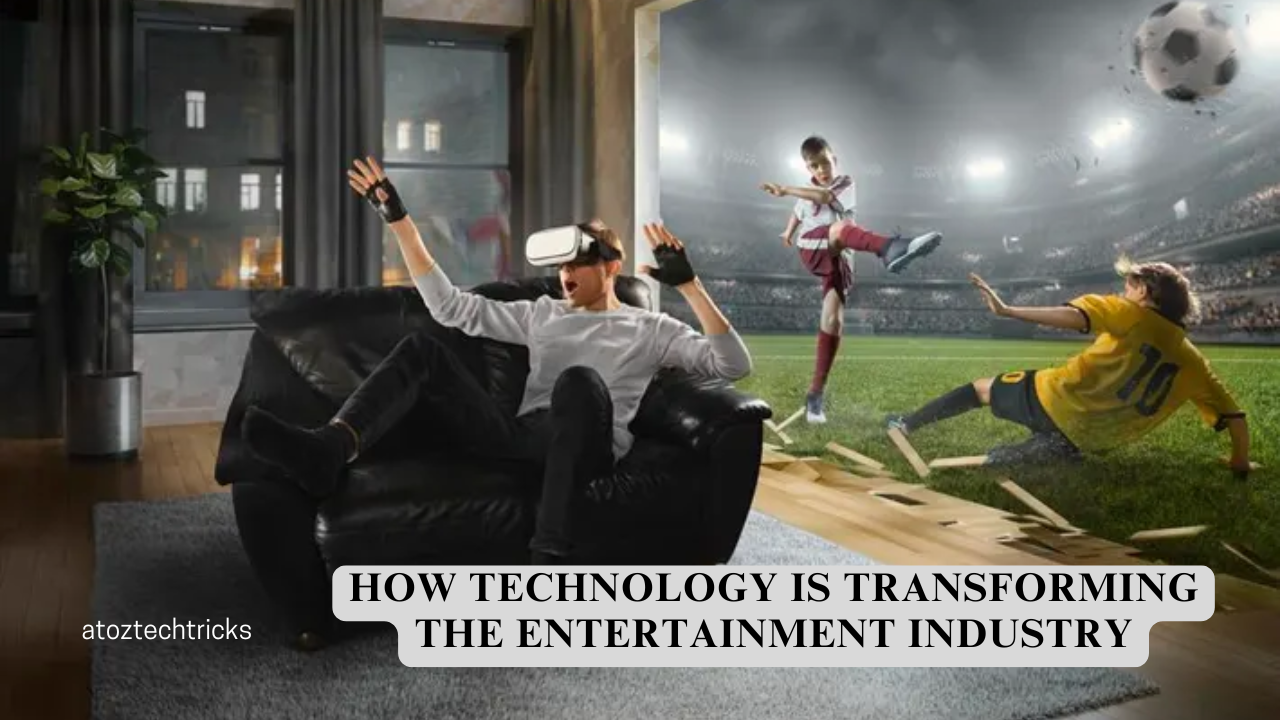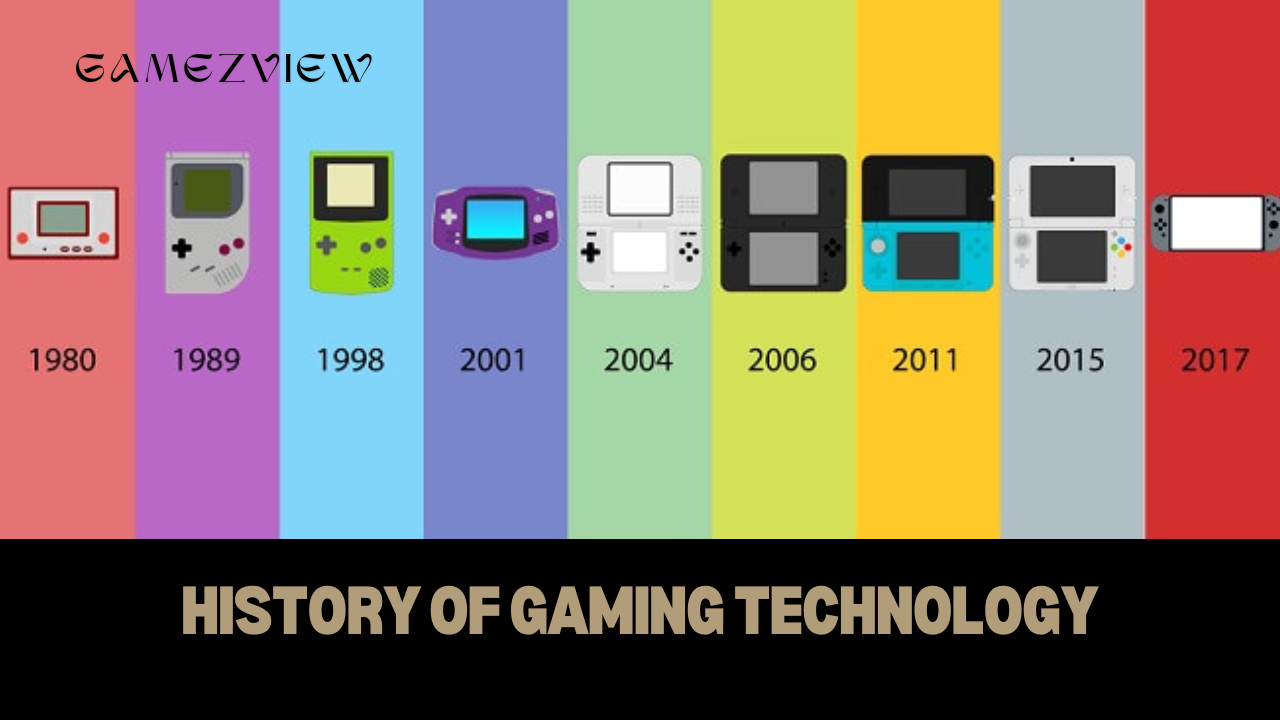Technology has always played a crucial role in shaping and reshaping various industries, but perhaps none more so than the entertainment industry. The advent of new technologies has revolutionized how content is created, distributed, and consumed, transforming not only the mediums through which we entertain ourselves but also the very nature of entertainment itself. From the rise of streaming services and virtual reality to artificial intelligence and blockchain, the entertainment industry is in the midst of a technological renaissance. This article delves into the various ways in which technology is transforming the entertainment landscape.
1. The Evolution of Content Consumption: From TV to Streaming
1.1 The Decline of Traditional Television
For decades, television was the dominant medium for entertainment. People would tune in at specific times to watch their favourite shows, and television networks held significant power over what content was available to the public. However, with the rise of the internet and digital technologies, traditional television has seen a steady decline. Cable subscriptions have decreased as more viewers opt for on-demand content, leading to what many refer to as the “cord-cutting” phenomenon.
1.2 The Rise of Streaming Services
Streaming services like Netflix, Hulu, and Amazon Prime Video have fundamentally changed the way we consume content. These platforms allow users to watch what they want when they want, and on any device they choose. This flexibility has made streaming services immensely popular, with Netflix alone boasting over 230 million subscribers as of 2024. The success of these platforms has also led to the creation of original content, further challenging traditional television networks.
1.3 The Impact of Mobile Technology
The proliferation of smartphones and tablets has made it easier than ever to access entertainment content. Mobile technology has enabled consumers to watch movies, TV shows, and live events on the go, breaking the boundaries of traditional viewing experiences. Mobile apps for streaming services, gaming, and social media have become essential tools for consuming entertainment, contributing to the shift towards more personalized and flexible viewing experiences.

2. The Revolution of Content Creation: Virtual Reality, Augmented Reality, and Beyond
2.1 Virtual Reality (VR)
Virtual Reality (VR) has introduced a new dimension to entertainment by immersing users in fully interactive, 3D environments. VR technology has been particularly transformative in the gaming industry, where it allows players to experience games in a completely new way. Games like “Beat Saber” and “Half-Life: Alyx” have demonstrated the potential of VR to create highly immersive experiences that traditional gaming simply cannot match.
Beyond gaming, VR is also making inroads into other forms of entertainment. For instance, VR concerts and events are becoming more common, offering fans the opportunity to experience live performances from the comfort of their homes. The technology has even been used in filmmaking, with directors experimenting with VR to create immersive narratives that place viewers at the centre of the action.
2.2 Augmented Reality (AR)
While VR immerses users in entirely digital environments, Augmented Reality (AR) overlays digital content onto the real world. AR has gained significant traction in entertainment, especially in mobile gaming. The success of games like “Pokémon GO” showcased the potential of AR to create engaging and interactive experiences that blend the virtual and physical worlds.
AR is also being used in live events and performances. For example, artists have used AR to enhance live concerts with interactive visual effects that respond to the music. The potential for AR in entertainment is vast, with applications ranging from interactive storytelling to virtual theme park experiences.
2.3 The Future of Content Creation
As VR and AR technologies continue to evolve, the possibilities for content creation are expanding. These technologies enable creators to experiment with new forms of storytelling, creating experiences that are more interactive and immersive than ever before. The convergence of these technologies with artificial intelligence and machine learning is likely to lead to even more innovative and personalized entertainment experiences in the future.
3. Artificial Intelligence and Machine Learning in Entertainment
3.1 AI in Content Creation
Artificial Intelligence (AI) is playing an increasingly important role in content creation. AI algorithms can analyze vast amounts of data to identify trends and preferences, helping creators develop content that resonates with audiences. For example, streaming platforms use AI to recommend shows and movies based on users’ viewing habits, making content discovery more personalized.
AI is also being used to generate content. AI-driven tools can create music, write scripts, and even design visual effects. While AI-generated content is still in its infancy, it has the potential to complement human creativity and streamline the content creation process. For instance, AI can assist in generating background music for films or creating realistic CGI characters, reducing the time and cost associated with traditional methods.
3.2 AI in Content Distribution
In addition to content creation, AI is transforming how content is distributed. AI algorithms can optimize the distribution process by analyzing user behaviour and predicting which content is likely to be popular in different regions or demographics. This allows content providers to target their marketing efforts more effectively and maximize their reach.
AI is also being used to combat piracy and protect intellectual property. By monitoring online platforms and identifying unauthorized copies of content, AI can help entertainment companies protect their assets and reduce revenue losses due to piracy.
3.3 AI-Driven Personalization
One of the most significant impacts of AI on entertainment is personalization. AI algorithms analyze user data to create personalized recommendations, playlists, and experiences. This level of personalization enhances user engagement by providing content that aligns with individual preferences. As AI technology continues to advance, we can expect even more tailored and immersive entertainment experiences.
4. The Role of Blockchain in the Entertainment Industry
4.1 Blockchain for Digital Rights Management
Blockchain technology, best known for its use in cryptocurrencies, is also making waves in the entertainment industry. One of its most promising applications is in digital rights management. Blockchain can provide a transparent and immutable record of content ownership, making it easier to track and enforce intellectual property rights. This can help creators and distributors protect their work from piracy and unauthorized use.
4.2 Blockchain in Content Distribution
Blockchain is also being used to create decentralized content distribution platforms. These platforms allow creators to distribute their work directly to consumers without the need for intermediaries like studios or streaming services. This can reduce distribution costs and give creators more control over their content. Moreover, blockchain can enable micro-payments, allowing users to pay for content on a per-view or per-use basis, rather than through subscription models.
4.3 Non-Fungible Tokens (NFTs) in Entertainment
Non-fungible tokens (NFTs) have emerged as a new way for artists and creators to monetize their work. NFTs are unique digital assets that can represent anything from artwork to music to virtual real estate. In the entertainment industry, NFTs are being used to sell digital collectables, exclusive content, and even virtual concert tickets. The rise of NFTs has opened up new revenue streams for creators and has the potential to reshape how content is bought and sold.

5. Social Media and the Democratization of Content Creation
5.1 The Rise of User-Generated Content
Social media platforms like YouTube, TikTok, and Instagram have democratized content creation, allowing anyone with a smartphone to become a creator. This has led to the rise of user-generated content (UGC), which has become a significant part of the entertainment landscape. Creators on these platforms can reach millions of viewers, often bypassing traditional media channels entirely.
5.2 Influencer Culture and Content Creation
The rise of social media has also given birth to influencer culture, where individuals with large followings can leverage their audience to create and promote content. Influencers have become key players in the entertainment industry, often collaborating with brands, musicians, and filmmakers to create sponsored content. The influence of these digital stars has blurred the lines between traditional celebrities and social media personalities, reshaping how fame and success are defined in the entertainment world.
5.3 The Impact of Live Streaming
Live streaming has become a popular form of entertainment on social media platforms. Services like Twitch and YouTube Live allow creators to broadcast in real time, engaging with their audience through live chats and interactions. Live streaming has proven particularly popular in gaming, with platforms like Twitch hosting millions of hours of live gameplay each month. However, it has also expanded to other forms of entertainment, including live concerts, talk shows, and virtual events.
6. The Future of Entertainment: Emerging Technologies and Trends
6.1 5G and the Next Generation of Mobile Entertainment
The rollout of 5G networks promises to bring faster and more reliable internet connections, which will have a profound impact on mobile entertainment. With 5G, users can stream high-definition video, play cloud-based games, and experience AR and VR content with minimal latency. This will enable more immersive and interactive entertainment experiences on mobile devices, further blurring the lines between different forms of media.
6.2 The Metaverse: A New Frontier for Entertainment
The concept of the metaverse—a collective virtual shared space where users can interact with each other and digital content—is gaining traction as the next big thing in entertainment. Companies like Meta (formerly Facebook) and Epic Games are investing heavily in the development of metaverse platforms, where users can socialize, play games, attend virtual events, and even conduct business. The metaverse has the potential to create entirely new forms of entertainment, where the lines between the virtual and real worlds are increasingly blurred.
6.3 The Integration of AI and Robotics in Entertainment
As AI and robotics continue to advance, they are being integrated into various forms of entertainment. AI-driven characters and virtual assistants are becoming more common in games and interactive experiences, offering more dynamic and responsive interactions with users. In theme parks and live performances, robotics are being used to create animatronics and interactive exhibits that enhance the visitor experience. The integration of these technologies is pushing the boundaries of what is possible in entertainment, creating experiences that are more immersive and engaging than ever before.
7. Challenges and Ethical Considerations
7.1 The Impact of Technology on Employment in the Entertainment Industry
While technology has created new opportunities in the entertainment industry, it has also raised concerns about the impact on employment. Automation and AI-driven tools have the potential to displace jobs in areas like content creation, distribution, and marketing. As the industry continues to evolve, there will be a need for workers to adapt to new roles and acquire new skills to remain relevant in the changing landscape.
7.2 The Ethical Implications of AI and Data Privacy
The use of AI and data analytics in entertainment raises important ethical considerations, particularly around privacy and surveillance. As companies collect and analyze vast amounts of user data to personalize content and improve experiences, there is a risk of infringing on individuals’ privacy. Additionally, the use of AI in content creation raises questions about authorship and intellectual property, as well as the potential for AI-generated content to perpetuate biases and stereotypes.
7.3 The Environmental Impact of Digital Entertainment
The increasing reliance on digital technologies in the entertainment industry has also raised concerns about the environmental impact. Streaming services, cloud computing, and data centres consume significant amounts of energy, contributing to carbon emissions. As the industry continues to grow, there will be a need for more sustainable practices to minimize the environmental footprint of digital entertainment.

Technology is undeniably transforming the entertainment industry in profound ways. From the way we consume content to how it is created, distributed, and monetized, technological advancements are driving innovation and reshaping the landscape of entertainment. While these changes bring exciting opportunities, they also present challenges and ethical considerations that the industry must address. As we look to the future, it is clear that technology will continue to play a central role in defining the entertainment experiences of tomorrow, offering new possibilities for creators and consumers alike.



